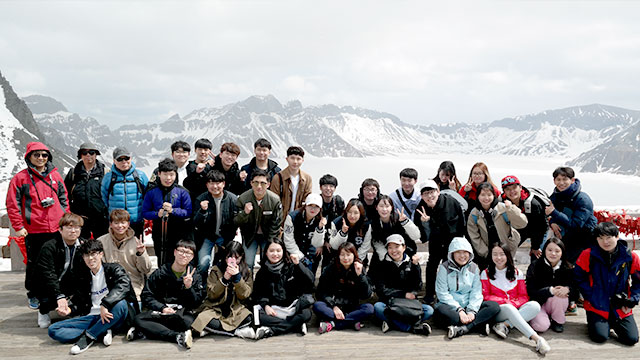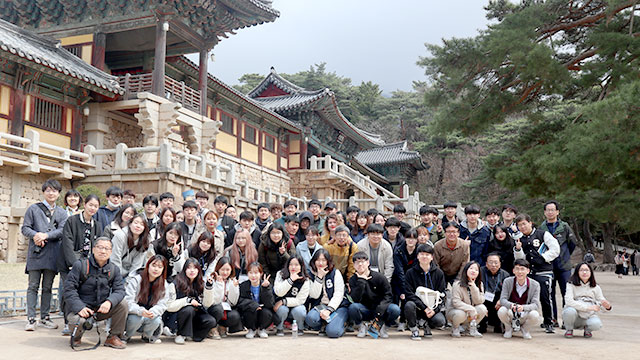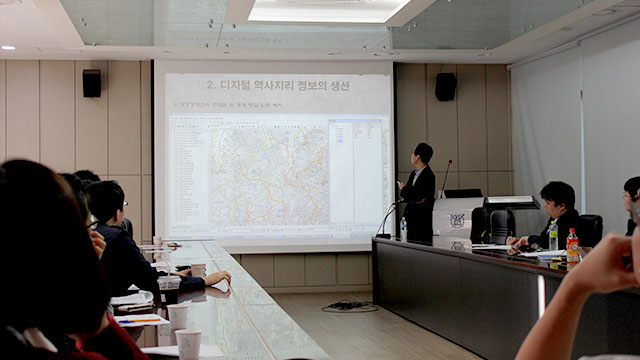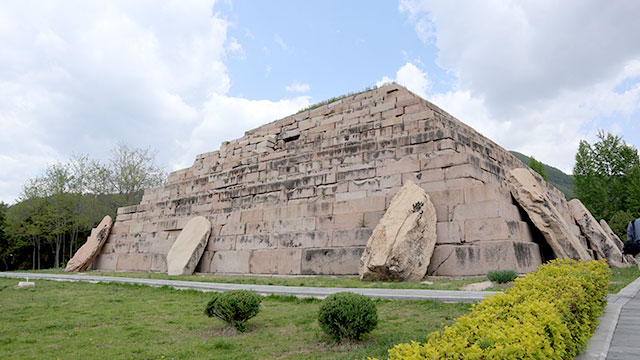Introduction
Korean History Major traces its roots to the History Department of the College of Liberal Arts and Sciences, established in 1946 with the foundation of Seoul National University. In March 1969, it became an independent academic department when the Department of History was split into three separate units. With the move of SNU to the Gwanak campus in 1975 the Department f Korean History became part of the newly organized College of Humanities. From 2023, as the Department of Korean History was integrated into the Department of History, it was reorganized into the Korean History Major as a part of the Department of History.
Korean History Major has been a major center of research on the history and culture of Korea since its inception and has played a leading role in applying historical insight to contemporary social issues. Building upon this foundation the department is committed to the globalization of Korean Studies in the 21st century. It has diversified its academic range and is actively engaged in international exchange with leading institutions and scholars around the world.
The primary aim of the major is to provide an objective understanding of reality through education concerning Korean history and culture. Upon this foundation the past can be correctly perceived and a healthy insight concerning the future of society fostered. Toward this end, the major focuses upon 1) systematically understanding the structures, attitudes, and transformations within each age and sector of history through courses covering antiquity to the present; 2) cultivating independent critical reading and analytic ability through the close reading of a wide variety of primary history sources; 3) developing insight on the close relationship between nature and humankind and nature and culture through field trips to both foreign and domestic historical sites, and 4) enhancing the creativity and expressive ability of students through thesis research and writing. Through such training in both the fundamental and universal dimensions of the study of the Korean past, the major seeks to produce graduates with a global vision who can help guide the future of Korean society and to cultivate future generations of scholars through the enhancement of professional standards founded on national identity.
The curriculum of the major comprises five historical periods-ancient history, the Goryeo Dynasty, the Joseon Dynasty, the Japanese colonial period, and contemporary history, with each historical period divided into fields of inquiry: politics, economics, society, and culture. The Department of Korean History strives impartially to reconstruct historical truth by critically interpreting extant historical documents Toward this end, an understanding of the research and methodology of related fields such as archaeology and art history, Korean language and literature, linguistics, philosophy, socioeconomic history, anthropology, epigraphy, and archival science is required.
The major prides itself on the cultivation of talented individuals who possess and erudite knowledge of over five millennia of rich cultural history and an historical eye for issues of practical import as well s insight into the history of the future. These advantages are of substantial value to graduates of the department in becoming self-aware and promoting the public good as they assume leading roles not only in academia but in society at large, including governmental organizations, news an broadcast media, publishing companies, corporations, and non-governmental organizations.
Korean History Major has been a major center of research on the history and culture of Korea since its inception and has played a leading role in applying historical insight to contemporary social issues. Building upon this foundation the department is committed to the globalization of Korean Studies in the 21st century. It has diversified its academic range and is actively engaged in international exchange with leading institutions and scholars around the world.
The primary aim of the major is to provide an objective understanding of reality through education concerning Korean history and culture. Upon this foundation the past can be correctly perceived and a healthy insight concerning the future of society fostered. Toward this end, the major focuses upon 1) systematically understanding the structures, attitudes, and transformations within each age and sector of history through courses covering antiquity to the present; 2) cultivating independent critical reading and analytic ability through the close reading of a wide variety of primary history sources; 3) developing insight on the close relationship between nature and humankind and nature and culture through field trips to both foreign and domestic historical sites, and 4) enhancing the creativity and expressive ability of students through thesis research and writing. Through such training in both the fundamental and universal dimensions of the study of the Korean past, the major seeks to produce graduates with a global vision who can help guide the future of Korean society and to cultivate future generations of scholars through the enhancement of professional standards founded on national identity.
The curriculum of the major comprises five historical periods-ancient history, the Goryeo Dynasty, the Joseon Dynasty, the Japanese colonial period, and contemporary history, with each historical period divided into fields of inquiry: politics, economics, society, and culture. The Department of Korean History strives impartially to reconstruct historical truth by critically interpreting extant historical documents Toward this end, an understanding of the research and methodology of related fields such as archaeology and art history, Korean language and literature, linguistics, philosophy, socioeconomic history, anthropology, epigraphy, and archival science is required.
The major prides itself on the cultivation of talented individuals who possess and erudite knowledge of over five millennia of rich cultural history and an historical eye for issues of practical import as well s insight into the history of the future. These advantages are of substantial value to graduates of the department in becoming self-aware and promoting the public good as they assume leading roles not only in academia but in society at large, including governmental organizations, news an broadcast media, publishing companies, corporations, and non-governmental organizations.
List of Professor
| Name | Major | Contact | |
|---|---|---|---|
| Ko, Tae-woo Associate Professor |
Medern Korean History | 02-880-6254 | kotwmaha@snu.ac.kr |
| Kwon Oh-Young Professor |
Ancient Korean history | 02-880-6181 | koy1108@snu.ac.kr |
| Kim Kuen-Tae Professor |
Early modern Korean history | 02-880-6183 | kimkt@snu.ac.kr |
| Kim Kyeong-Sook Professor |
Early modern Korean history | 02-880-6191 | heemdang@snu.ac.kr |
| Nam Dong-Sin Professor |
History of Korean Buddhism | 02-880-6182 | dsnam@snu.ac.kr |
| Moon Joong-Yang Professor |
History of Korean science | 02-880-6179 | moonsori@snu.ac.kr |
| Park, Sunghyun Associate Professor |
Ancient Korean History | 02-880-6178 | historypark@snu.ac.kr |
| Dongwon Lee Associate Professor |
Contemporary Korean history | 02-880-6261 | dwlee2@snu.ac.kr |
| Lee, Hana Associate Professor |
Culture Contents in History(including Digital History) | 02-880-6185 | ihanalee@snu.ac.kr |
| Jeong Yo-Keun Professor |
Medieval Korean history | 02-880-6198 | jykyys@snu.ac.kr |
| Hur Soo Professor |
Modern Korean history | 02-880-6180 | crctaper@snu.ac.kr |
| John P. Dimoia Professor |
Korean History | 02-880-6194 | jdimoia@snu.ac.kr |







